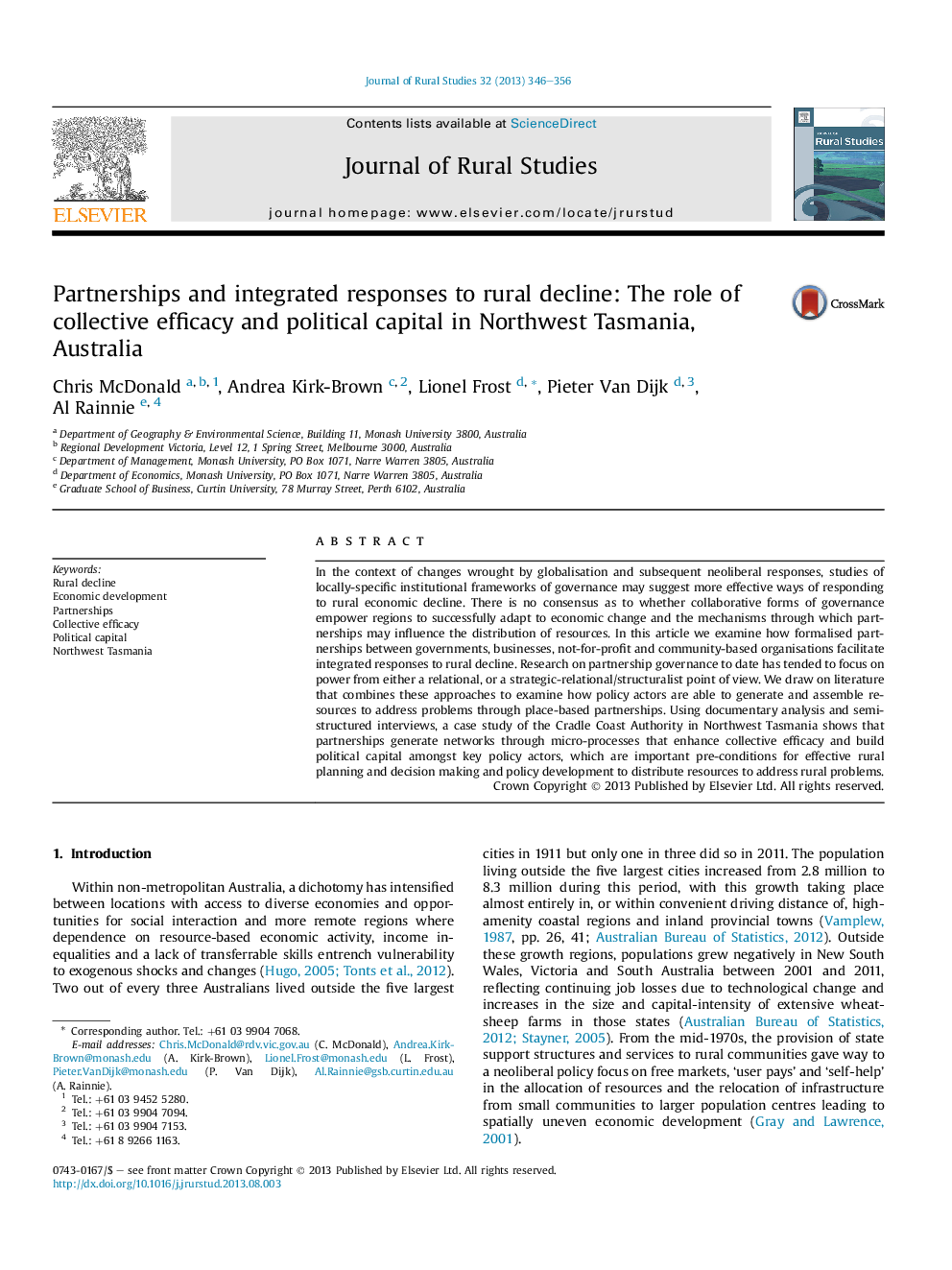| Article ID | Journal | Published Year | Pages | File Type |
|---|---|---|---|---|
| 6545938 | Journal of Rural Studies | 2013 | 11 Pages |
Abstract
In the context of changes wrought by globalisation and subsequent neoliberal responses, studies of locally-specific institutional frameworks of governance may suggest more effective ways of responding to rural economic decline. There is no consensus as to whether collaborative forms of governance empower regions to successfully adapt to economic change and the mechanisms through which partnerships may influence the distribution of resources. In this article we examine how formalised partnerships between governments, businesses, not-for-profit and community-based organisations facilitate integrated responses to rural decline. Research on partnership governance to date has tended to focus on power from either a relational, or a strategic-relational/structuralist point of view. We draw on literature that combines these approaches to examine how policy actors are able to generate and assemble resources to address problems through place-based partnerships. Using documentary analysis and semi-structured interviews, a case study of the Cradle Coast Authority in Northwest Tasmania shows that partnerships generate networks through micro-processes that enhance collective efficacy and build political capital amongst key policy actors, which are important pre-conditions for effective rural planning and decision making and policy development to distribute resources to address rural problems.
Related Topics
Life Sciences
Agricultural and Biological Sciences
Forestry
Authors
Chris McDonald, Andrea Kirk-Brown, Lionel Frost, Pieter Van Dijk, Al Rainnie,
